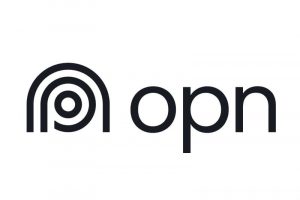(ATF) Singapore’s Government Technology Agency (GovTech) and Ministry of Health say they have developed a ‘globally interoperable’ standard known as HealthCerts to verify Covid-19 test results – and speed up clearance through immigration checkpoints when travelling.
HealthCerts is powered by blockchain-technology to issue legitimate digital documents such as vaccination certificates that can be verified in an open-source network. The Smart Nation and Digital Government Group (SNDGG) said in a press statement that the HealthCerts scheme ultimately aims to “facilitate the safe resumption of travel.”
EY Consulting’s Asia-Pacific Blockchain Leader, Jimmy Ong told Asia Times Financial that building the framework on a public blockchain network facilitates two security measures: immutability and verification.
“Because it’s on the public blockchain, anyone can put the data there. What the government and many companies on the network are doing is first verifying datasets and entities creating them so once it presents itself on the blockchain, we all can be sure it’s coming from Singapore’s Ministry of Health’s certified healthcare provider,” Ong explained.
State approval boosts blockchain
Cryptocurrency in Singapore is not treated as legal tender, but as goods, so the Goods and Services tax applies. But the Singaporean government was proactive about cryptocurrency regulation since well before Covid-19 shuttered banks and in-person services.
The Monetary Authority of Singapore (MAS), the country’s financial regulatory body, enacted comprehensive regulation of global cryptocurrency trading and exchanges with the passing of the Payment Services Act in January 2020.
Assistant Managing Director of MAS, Loo Siew-Yee said in a statement about the PS Act that “activity-based and risk-focused regulatory structure allows rules to be applied proportionately and to be robust to changing business models.”
In line with mainstreaming blockchain protocols, legislative amendments in the Payment Services Act are key because they are founded in international standards to address money laundering and terrorism financing risks posed by virtual asset service providers (VAPs).
MAS, in collaboration with the state investment firm Temasek and American bank JP Morgan, initiated a five-year prototype network called Project Ubin which provides multi-currency payment system based on central-bank issued digital tokens to support use-cases such as conditional payments, escrow for trade and payment commitments for trade finance.
To date, MAS and its partners have integrated over 40 financial and non-financial firms to explore the upsides of the network.
Both governmental and fintech sectors have been working closely for years deliberating and developing blockchain and digital ledger technology (DLT) to enhance Singapore’s financial ecosystem, and Ong stressed that the public blockchain network is on par to becoming a reliable avenue for B2C players.
“It’s definitely the right direction to build it on open protocol because really, no one person owns it or any other country owns the public blockchain network,” says Ong.
Financial institutions fast-adopting blockchain
Early this year, the DBS Bank of Singapore gave a green light for the launch of Asia’s first digital asset exchange to activate institutional-grade custody solutions for cryptocurrencies by ultimately bypassing a complicated system of intermediaries.
International banks are increasing their operations on blockchain to enhance trade finance systems by implementing digital ledger technology (DLT), a system to record asset transactions, to provide better governance and standards of data-sharing and collaboration.
“DLT offers entities documentation review in real-time, traceability and transparency of asset ownership with data privacy,” Oi Yee Choo, Chief Commercial Officer at the private exchange platform iSTOX, said.
Backed by Singaporean Exchange (SGX), iSTOX graduated from the MAS’ fintech regulatory sandbox, making the capital markets platform the first in Asia to integrate DLT for issuing documentation and allowing trading of digitized securities.
In order to tokenize traditional securities such as equity, debt, funds and asset-backed securities on trading platforms, companies like iSTOX are using Ethereum, a distributed ledger, to create smart contracts to sanction transparent and cost-effective transactions, where new securities can be created and issued at a much lower cost in comparison to their traditional counterparts.
Aside from purely using a public ledger, investments are being secured in private networks to eventually fund public blockchain networkers. One such company that shows a symbiotic relationship between private and public networks is Hashed, a Seoul-based blockchain investment group, runs on the base layer protocols similar to Ethereum to nurture the next generation of blockchain startups.
Hashed has raised $120 million venture funds to support and promote the growing use of different blockchain networks, also known as protocols.
“Overall, I think under the regime of digitising bonds and equities, Singapore is at the forefront of creating the environment to allow this to happen,” says Choo, also pointing out the caveat for traditional institutions to first hire developers and figure out fitting blockchain into their existing systems.
It’s clear that blockchain technology is supplementing traditional financial infrastructure in Singapore shored up by the government, but it remains to be seen to what degree banks embrace blockchain while the pandemic is here to stay.
























